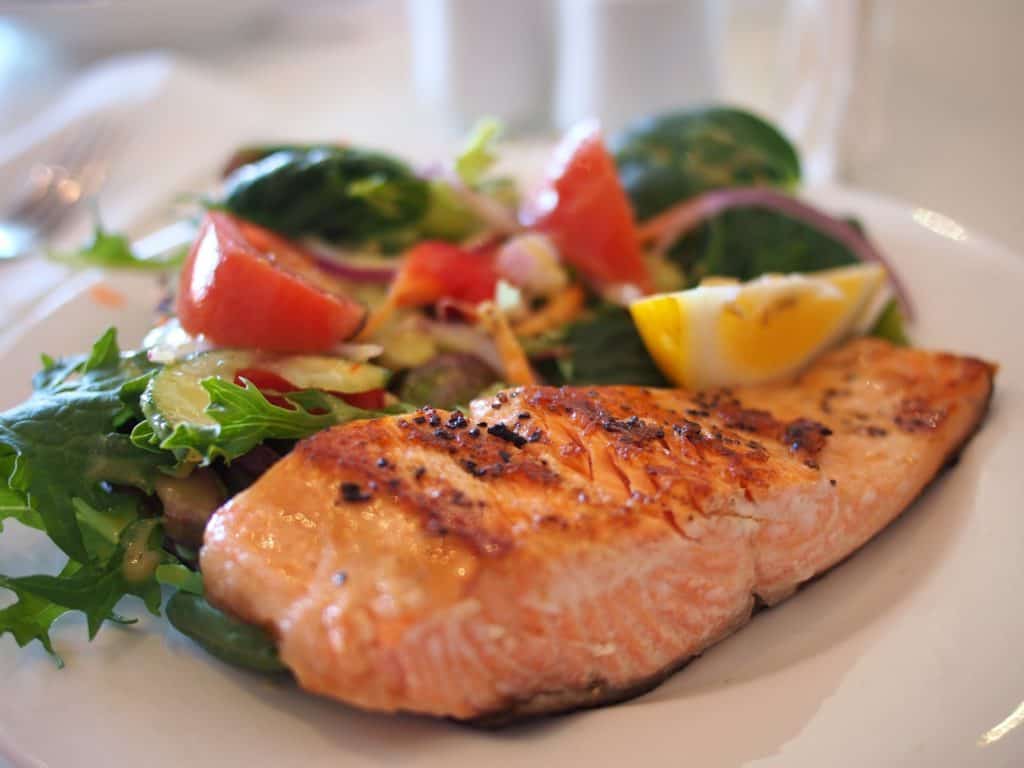Let’s get one thing straight: weight loss is not always the Disney version fairy tale. It can be hard, grueling, and it can test you, similar to the original Grimm fairy tales. You think you’re ready for the challenge? Good. Because it’s not just about losing weight; it’s about rewiring your lifestyle, reshaping your choices, and rewriting your future.
- The Brutal Truth About Shedding Pounds
Listen, nobody said losing weight was going to be easy or comfortable. And if they did, ignore ignore the rest of their fitness advice. If it were, everyone would be strutting around with their dream physique. The reality? Life’s busy. Temptations are everywhere. Motivation comes and goes like the wind. But shedding those pounds is possible. It just demands more than just fleeting desires. It requires a commitment to maintaining a calorie deficit and saying “no” more than you say “yes.”
- The Non-Negotiable: Discipline
If you want to make your goals, discipline is non-negotiable. It’s the foundation of maintaining a calorie deficit. That means making choices every day that align with your goals: swapping out that soda for water, choosing the stairs over the elevator, portioning your meals even when you’d rather not. It’s about doing the work, day in, day out, even when it’s the last thing you feel like doing.
- Cravings? Conquer Them Like a Boss
Food cravings are the ultimate test of will. They sneak up on you, whisper sweet nothings, and before you know it, you’re off the wagon. But guess what? You’re stronger than your cravings. Instead of succumbing, arm yourself with strategies. Opt for foods that pack a punch in nutrients but are low on calories. Stay so hydrated that those cravings don’t stand a chance. Short on sleep? Fix it. Your body and mind will thank you. And when you eat, be present. Devour every bite mindfully.
Let’s go over the top fix ways to curb those cravings when they hit and how you can hit those goals.
1) Drink Plenty of Water
Hydration isn’t just about quenching your thirst; it’s the unsung hero in the battle for peak performance and smashing those weight loss goals. Neglect it, and you’re setting yourself up for a tougher fight.
Importance of Hydration to Prevent False Hunger
Ever felt famished, raided the fridge, then realized you were just thirsty? That’s dehydration masquerading as hunger, a trickster leading you to unnecessary snacking. For a lot of Americans the thirst mechanism is so weak that it is often mistaken for hunger. So, when your body sends SOS signals for water don’t misinterpret it as a green light for calorie overload. Instead, grab a glass of water and see if that helps first.
Recommendation on Daily Water Intake
There’s no one-size-fits-all for water intake. Most sources will tell you that a good rule of thumb is eight to ten 8-ounce glasses daily. While that is a good starting point for most people it shifts based on your weight, how much you sweat, and whether you’re living in the Sahara or Siberia. Of course, much like protein, spread that intake evenly across the day to keep your hydration levels optimal.
Benefits of Water in Reducing Cravings for Unhealthy Foods
Craving junk? Guzzle some H2O first. Often, that pang for sugary delights is your body’s plea for water. Plus, filling up on water can keep your stomach satisfied and your hand out of the cookie jar. It’s a simple, effective strategy to keep your calorie intake in check.
2) Eat Nutrient-Dense Foods
Stop wasting your time and start fueling your body like a high-performance machine. Nutrient-dense foods aren’t just some fancy diet trend—they’re necessary for optimal health.
Role of Fiber, Protein, and Other Nutrients in Satiety
Think of fiber and protein as your hunger-crushing allies. These two keep you full, helping you cut the snacking and keeping you focused on your goals. Bet on fiber and protein for pulling off that calorie deficit without feeling starved.
How Nutrient-Dense Foods Keep You Full and Energized
Nutrient-dense foods are premium gas for your tank. They keep your energy steady and your mind clear. Since they contain a LOT of micronutrients, they can help with natural energy levels and keep your body running smoothly even though it is taking in less fuel.
Adding Vegetables for Fullness and Weight Loss
If your plate’s a sea of beige, you’re doing it wrong. Pile on the greens, reds, and yellows. You can eat a ton of vegetables for the same caloric ‘cost’ of a bottle of soda. They could be your secret weapon for staying full and making that calorie deficit work to your advantage.
High Water Content and Low Energy Density of Vegetables
Ever felt bloated after chugging water but still hungry? Vegetables can fix this. They fill you up without padding out your calorie count. One huge cup of chopped broccoli is only 31 calories, and a similar sized cup of cucumbers is only 16. Toss in a few cups of veggies each day and you can eat a ton for far fewer calories than you do now while still feeling full!
3) Keep Your Stress Levels Low
Winners keep their cool. If you’re stressed, kiss that calorie deficit goodbye. A huge amount of people stress eat, and that could happen to you as well so don’t think it won’t. Stress-management isn’t optional it’s critical for weight loss. And life as a whole.
Stress and cravings are best friends. Higher stress equals amped-up kitchen raids. To hit that calorie deficit, you’ll need to put a lid on stress-induced fridge plundering.
Stay Connected:
Join our community! Subscribe now for exclusive tips, updates, and special offers delivered straight to your inbox. Don’t miss out.
Strategies to Manage Stress
Exercising
Get moving and shake off the stress. Endorphins are free, and they’re the kick-ass answer to your tension. Hit the pavement, crush those weights, swim some laps, do some burpees. Whatever. Just move.
Spending Time with Loved Ones
Your tribe is your fortress. Being with loved ones isn’t just nice; it’s a stress reducer. It’s not about the quantity of time; it’s the quality.
Journaling
Put pen to paper and let your thoughts out. It’s not just a diary, it’s a tool. Find your stress triggers and write them down. Then build a plan to overcome them.
Attending Therapy
Therapy isn’t always dirty word. While I would never recommend it for the vast majority of people, for some it can be helpful. If you suffer from some pretty intense stress issues consider a therapist, talk through your stress, and get on the path to doing better.
4) Get Enough Sleep
Sleep isn’t just a luxury; it’s an incredibly neglected part of a healthy lifestyle. But, it is also huge for helping control hunger.
When you skip on sleep, you throw your hunger hormones—ghrelin and leptin—into chaos. This can result in uncontrollable cravings and a predisposition to devour high-calorie garbage. If you can’t tame your appetite, your calorie deficit goes up in flames.
Understanding the Brain’s Response to Sleep Deprivation
Ever tried making a crucial decision when you’re tired? That foggy brain isn’t a fluke. Lack of sleep hijacks your frontal cortex—your command center for decision-making and self-control. You wouldn’t trust a shaky hand to lift a heavyweight; don’t trust a sleepy brain to make strong choices.
But the havoc doesn’t stop there. Your amygdala, the emotional engine, spins out of control when you’re sleep-deprived. This overactive beast makes resisting unhealthy food a Herculean task. You want to feed your cravings or starve your excuses? Get serious about your sleep.
Recommended Sleep for Curbing Cravings
Seven to eight hours of quality sleep each night should be your baseline. This isn’t negotiable. Prioritize sleep like your transformation depends on it—because it does. The science is clear: regulated hunger hormones and a fortified will are the prizes here.
5) Recognize When You’re Truly Hungry
Understanding when you’re truly hungry is an important skill for everyone, but even more crucial for maintaining a calorie deficit and achieving your weight loss goals. It’s important to differentiate between physical hunger and other types of cravings, such as those caused by boredom or emotional distress. Physical hunger develops gradually and can be identified by hunger cues such as a growling stomach or feeling lightheaded. In contrast, emotional eating is often sudden and linked to specific emotional triggers like stress, sadness, or even happiness.
Importance of Being Attuned to Your Emotions
Being in tune with your emotions can help you make better decisions about eating. Emotional awareness involves recognizing your feelings and understanding their causes. When you are aware of your emotions, you can better manage them without turning to food. For instance, if you notice that you eat when you’re stressed, you can develop healthier ways to deal with stress such as exercising.
Avoid Using Food as a Coping Mechanism
Using food to cope with emotions can derail your calorie deficit efforts. It’s essential to find alternative coping mechanisms that do not involve eating. Activities like reading, taking a walk, or talking to a friend can provide the emotional support you need without adding unnecessary calories. Keeping a journal to track your feelings and hunger levels can also be an effective way to understand your eating habits.
Conclusion: Following the Tips
Congratulations on taking the steps toward a healthier, fitter you! Throughout this guide, we’ve uncovered essential tips that are key to maintaining a calorie deficit and achieving your weight loss goals. By understanding the science behind a calorie deficit, recognizing true hunger, prioritizing sleep, and managing stress, you’re setting the foundation for success.
Getting enough sleep ensures that your hunger hormones stay balanced, reducing the likelihood of overeating. Distinguishing between physical hunger and emotional cravings helps you make better food choices and keeps you from giving in to unnecessary snacking. Building emotional awareness and finding alternative coping mechanisms safeguard your calorie deficit by steering you away from emotional eating.
These practices aren’t just quick fixes; they are lifestyle changes that will provide long-lasting benefits. When you commit to these tips, you’re not only working toward a healthier weight but also improving your overall well-being.
Encouragement to Adopt These Tips for Better Results
Now that you know the critical components of maintaining a calorie deficit, it’s time to put this knowledge into action. Start by incorporating these habits into your daily routine. Keep track of your progress and stay mindful of your body’s needs and emotions. Don’t get discouraged if you face challenges along the way; transformation takes time and dedication.
A successful journey to weight loss is built on consistent effort and smart choices. By following these tips, you’ll find it easier to stick to your calorie deficit, resist unhealthy cravings, and achieve your health goals. Remember, every small step counts, and each positive change brings you closer to your desired outcome.
Stay motivated, stay disciplined, and believe in your ability to succeed. By embracing these practices, you’re making a commitment to a healthier, happier you.



